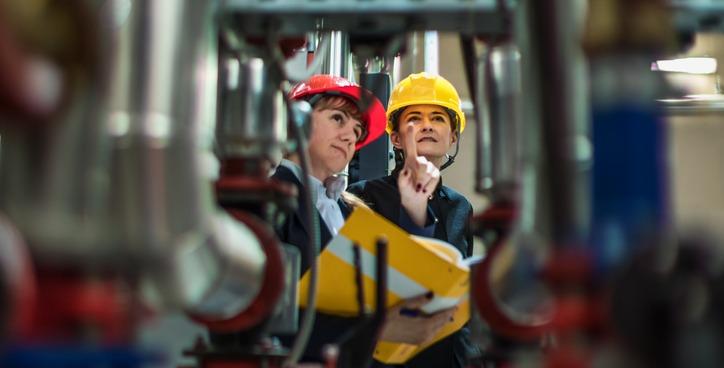International Day of Women and Girls in Science: Sian Nord, Assistant Mechanical and Energy Engineer at The University of Manchester

International Day of Women and Girls in Science: Sian Nord, Assistant Mechanical and Energy Engineer at The University of Manchester
Tuesday 11th February marks the International Day of Women and Girls in Science, celebrating the critical role that women and girls play in addressing the major challenges of our time, through their active contributions in the fields of science and technology.
As science, technology, engineering and mathematics (STEM) subjects often form the basis of jobs in the environmental sector, we wanted to give an insight into the role of one of the energy professionals we support at Salix Finance.
Sian Nord, Assistant Mechanical and Energy Engineer at The University of Manchester, has 13 years’ experience in the field. Throughout her career to date, Sian has worked in both the public and private sectors for companies such as Balfour Beatty and Engie. Her relationship with Salix began over five years ago when she joined the University of Manchester. Since 2014, Sian has implemented over 60 energy efficiency projects through the university’s Recycling Fund. Her management of a fund size of £1,390,900 has helped to achieve lifetime financial savings of almost £23 million and annual carbon savings of 9,300 tonnes of carbon dioxide.
We chatted to Sian to find out more about her role, her work with their Recycling Fund and to see if she had any advice for others looking to enter the field.
Education and career
I took an alternative route into my current role. I read English Literature at university and my first role was as an assistant energy manager at Balfour Beatty; they paid for me to go back to university to do an energy manager qualification. I really enjoyed the job and I was able to learn from a variety of people such as clerical and accounts staff, energy managers and engineers.
My current role
In my current role as a Mechanical and Energy Engineer for the University of Manchester, I manage the utility budget of £15 million as well as the university’s carbon targets, aiming for net zero by 2038. This is in line with Manchester City Council’s carbon targets. My role involves reporting, compliance work and management of energy reduction projects. I also manage the Salix Recycling Fund, focusing on different energy efficiency aspects within buildings and technologies.
What I enjoy the most
I like how every day is different. One day I will be looking at projects, another day doing a bit of data analysis, and the next working with students on a piece of research. I enjoy seeing the progression of a design from a piece of paper transformed into a real project and making a difference to the end user. For example, buildings can be transformed by just changing the lighting. At the University, we have a range of buildings within the estate, from listed to very modern buildings. Over time as building use changes, lighting needs to be redesigned to reflect these changes, therefore we update and redesign the lighting for their use as labs, writing spaces, seminar rooms etc. We not only reduce consumption but improve the environment for the end user.
Key skills
Key skills required in my role include attention to detail, accuracy and consistency. When looking at consumption within a big institution with lots of buildings, it can be quite complicated to bring the data together. I often have students, post graduates and the sustainability team all reporting on the figures I publish so it’s important they are all aligned.
I support students in a variety of ways, from working with them doing dissertations and research, to looking at behavioural change. As engineers, we hold the data to support the sustainability department for their reporting and marketing. I often collaborate with the sustainability team; for example, with their Switch Off campaign.
Reaching net zero
Everybody is working towards the goal of becoming net-zero. To help reach the University’s 2038 target, I aim to be more innovative with projects. There is a need for an interim period of low-carbon solutions to prepare buildings for a net-zero future. In order for our estates to reach net-zero carbon, we have formed a working group to strategise “no regret measures”, for example, replacing a heat coil with an over-sized version so when installing electric heat pumps, we would be able to run water at 40 C rather than the 80 C – 90 C. This is to ensure buildings are net-zero ready.
Shift in perception
I think there’s still a perception that the industry is dominated by men. During my ten years working within the sector, I have noticed a big shift with more women entering the industry. Women need to be empowered to take on these roles, whether this comes from a leadership group online or something similar. It would be useful for the younger generation to have more exposure to these roles. To have women getting out there into schools and sharing how they’ve gone down their career path, explaining their roles and to talk to kids about what subjects to take if they are interested in doing the same. The industry has changed from one heavily focused on engineering to one that’s focused more on technology and sustainability. It is no longer just about boilers and pipes – it’s more about creating a better environment for building users.
